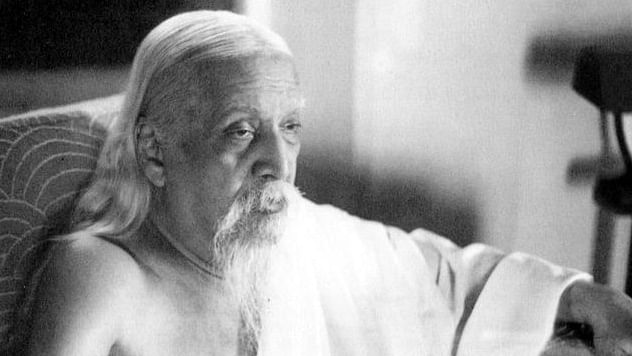Sri Aurobindo Foundation will be hosting 12 webinars in total, every two months, all based on the various topics on the teachings and principles of Sri Aurobindo.
Sri Aurobindo Foundation for Indian Culture (SAFIC) has strategised a two-year celebration to mark 150 years of the spiritual reformer’s birth that will be completed on August 15, 2022.
A philosopher, poet, guru and nationalist, Aurobindo Ghose was one of the influential leaders of the Indian Independence movement although he quit politics later and devoted himself to spiritual work. He believed that spiritual realisation not only liberated but also transformed human nature, resulting in the divine life.
Sri Aurobindo also developed a spiritual practice called Integral yoga. Among his main literary works are The Life Divine that explains theoretical aspects of Integral yoga; Synthesis of Yoga that deals with practising guidance to Integral yoga; and Savitri: A Legend and a Symbol, an epic poem.
SAFIC recently hosted its first webinar of the series, on the topic “Sri Aurobindo – The Rishi of India’s Renaissance”. The session featured eminent speakers including Padma Bhushan Dr David Frawley, a Hindu vedic acharya from the USA, Padma Shri professor Subhash Kak, a renowned scientist and the regents professor at the Oklahoma State University, Dr Anirban Ganguly, director of Dr Shyama Prasad Mookerjee Research Foundation, among others.
“India (Bharat) needs to reawaken its connection to Sri Aurobindo so that humanity can get back on track for its real work which is the greater evolution of consciousness,” Dr Frawley said in the inaugural session.
The second webinar, titled “On the Need to Transform India” was held today, August 22, 2020. The event featured Gitanjali, founding trustee, Transform India, in conversation with professor Subhash Kak and education reformist Sonam Wangchuk.
“Sri Aurobindo is someone who synthesised East and West, past knowledge systems. He belongs to the entire humanity and also the future…All of us have our little humble bit to contribute and this is how India will be transformed,” Gitanjali said in her introductory speech ahead of the launch of Transform India.
“Knowledge is not just related to doing things in a particular way but synthesising it. Ultimately, it is about getting in touch with your intuition,” Subhash Kak said.
The speakers talked about the importance of promoting mother tongue. “Mother tongue is a great asset. It is a crime really if we strip the child of the tool that is so customised to their way of expression,” said Wangchuk, adding one could learn other languages only after they acquire a thorough knowledge of their mother tongue.
The speakers also emphasised on the need to innovate technologies at the local level. “The rural population of India is very innovative but their innovativeness gets limited to what we call ‘jugaad’. The other half is very savvy with languages and etiquette but not so original in their innovations. What is more important is that we gear our innovative minds to solving our problems. Rural India, therefore, needs to have more access to science,” said Wangchuk.
Over the next 24 months, SAFIC will be hosting 12 webinars in total, every two months, on diverse topics based on the teachings and principles of Sri Aurobindo. “We have chosen 12 principle domains to cover the teachings of Sri Aurobindo. Each webinar will be a two-day event–the first day will be the keynote speech, followed by a panel discussion on the second day,” Dr Sampadananda Mishra, director, SAFIC, told indianexpress.com.
He added, “Parallelly we are also starting a decisive action initiative where we have chosen another set of domains like spirituality, agriculture, architecture, design, liberal arts, and politics. All these fields have to be envisioned in new forms, based on a spiritual foundation. For this, we are inviting the youth of India and finding the right kind of mentors for them. This is how the awareness about Sri Aurobindo’s vision will be created.”
Among these mentors are Srishti Institue of Art, Design, Auroville, and Technology and National School of Leadership, to name a few. “Sri Aurobindo’s vision was not about the glorification of the past but keeping the past as the foundation and leaping towards the bright future. So we are identifying people who are open to Sri Aurobindo’s teachings or have studied it,” Dr Mishra expressed.

